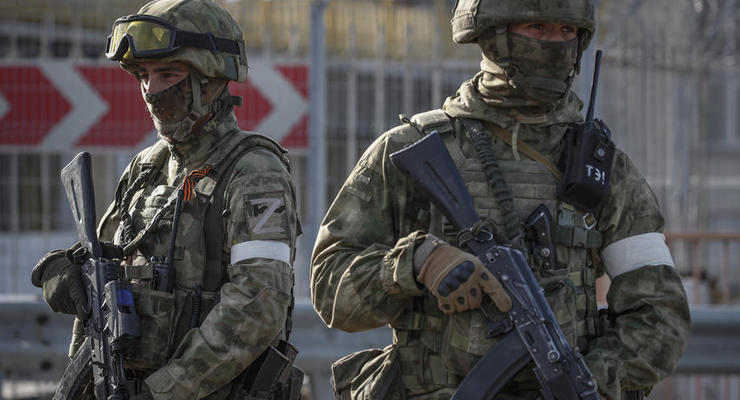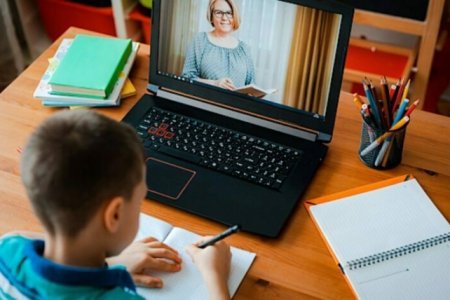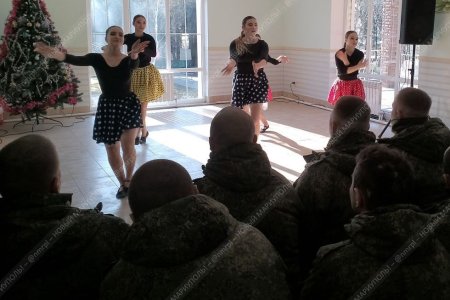
For Russia’s ideological warfare, the younger its victims, the better. Moscow is intent on inculcating ‘Russian world’ ideology in occupied parts of the Kherson and Zaporizhzhia oblasts, and it needs children to receive maximum exposure to such propaganda at school. It is no longer only adults who face being stopped and searched, with children regularly having their mobiles scrutinized for ‘seditiously’ pro-Ukrainian text conversations with their parents. In another déjà vu from Soviet times, attempts are made to get children to tell on fellow classmates who are studying at home according to the Ukrainian curriculum.
In a recent press briefing, the Mayor of Melitopol )Zaporizhzhia oblast), Ivan Fedorov confirmed that dozens of school students are continuing studies according to the Ukrainian syllabus, either as external students or following family programs, They cannot study online, as it is simply too dangerous, with the Russians likely at any moment to carry out raids or searches and react with repression if they find evidence of such programs on phones and other devices. Fedorov reported, for example, that a woman had been ‘deported’, together with her children, because the invaders discovered that the children were studying according to the Ukrainian syllabus. Parents have ended up summoned to the Russian military command if the invaders found evidence of such programs in their phones or those of their children.
Yuriy Sobolevskyy, Deputy Head of the Kherson Regional Council, told Radio Svoboda that in occupied areas of Kherson oblast, the Russians carry out raids in order to catch school students studying by the Ukrainian curriculum. In both Kherson and Zaporizhzhia oblasts, so-called ‘commissions on juvenile affairs’, abetted by fake ‘courts’, impose fines on parents, etc. if their children don’t attend Russian ‘schools’. They also threaten to have the children taken away and placed in children’s homes or sent to Russia. After very many months of Russian occupation, it is not surprising that a lot of parents are too frightened of losing their children to risk not sending them to Russian-controlled ‘schools’.
Sobolevsky stresses that what the children get in such ‘schools’ cannot be called education. There is huge emphasis of militaristic propaganda, with Russia also foisting its so-called ‘Youth Army’ or Yunarmia, and making propaganda videos with the children dressed up in military uniform. Russia is essentially intent on trying to convince Ukrainian children that they are ‘Russian’ and on foisting a false narrative about the war, and about Ukrainian and Russian history. There have been numerous reports of children on occupied territory having to write so-called ‘letters of gratitude’ to the Russians who have shattered their lives and of Russian soldiers being brought into the classroom. The children are also forced to learn and sing the Russian national anthem.
There are, however, reports of school students resisting this propaganda. Olena Tiorina, the head of a school in Melitopol, told Radio Svoboda of one young student who, when they were all being forced to sing Russia’s anthem, sang her, Ukrainian, national anthem. Children also engaged in a flash mob on the anniversary of Taras Shevchenko’s birthday (9 March), sending their teachers videos of them reciting his poems on the street. Tiorina explains, however, that they could not risk even posting such videos on social media, as all of this is extremely dangerous under Russian occupation.
Imported ‘teachers’
As reported, the Russian invaders encountered strong resistance from teachers and other education workers in areas they seized. They reacted, as they always do, with methods of coercion, including a number of abductions. Oksana Yakubova is the Head of a school in occupied Nova Kakhovka (Kherson oblast). She left after mounting pressure in the summer of 2022 against teachers and parents who refused to collaborate with the invaders. She was detained in August, with the Russians demanding that she sign an agreement to collaborate with them, and that she name other pro-Ukrainian educational workers. She and others were unwilling to do so, but the Russians issued one ultimatum, if they wanted to stay alive, namely to bring all the computers and other technology that the teachers had in their homes.
She was released, and managed to leave Nova Kakhovka via occupied Crimea, then Poland. She is now back in government-controlled Ukraine, teaching in Kyiv.
With relatively few teachers willing to collaborate, Russia brought in teachers from Dagestan, putting them in student hostels that were not full as so many students have also left for government-controlled Ukraine. Salaries in Dagestan are very low, and it is likely, Zair Magomedov, from Radio Svoboda’s Caucasian Realities project says, that the teachers have been enticed mainly by the money. Those sent are, however, clearly people whom Moscow knows can be trusted to follow the official line, and to carry out extra-curriculum propaganda tasks. One of these is clearly to give interviews on Russian state media, complaining among other things that the children of a country that Russia has invaded and is illegally occupying, do not know Russian well enough!
See also: Russia forces parents in occupied Ukraine to take Russian citizenship or lose their children



